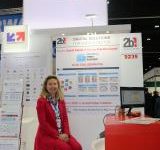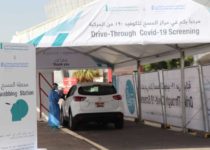The Emirates Diplomatic Academy (EDA), in cooperation with Prince Saud Al Faisal Institute for Diplomatic Studies (IDS); held a virtual workshop today, titled: “The Role of Diplomacy in Crisis Management.”
His Excellency Ambassador Abdallah Y. Al-Mouallimi, Permanent Representative of the Kingdom of Saudi Arabia to the United Nations, delivered a keynote address at the beginning of the workshop, which was attended by His Excellency Sheikh Shakhbout bin Nahyan Al Nahyan, UAE Ambassador to Saudi Arabia, and His Excellency Turki Al-Dakhil, the Saudi Ambassador to the UAE.
The enlightening workshop discussed three key issues, including Planning and Crisis Management, the International Cooperation and Diplomacy in Mitigating the Impact of Crises and the Bilateral and Multilateral Diplomacy, which deliberated the role of international organisations in such crises.
The workshop came within the framework of the completion of EDA and IDS agenda for the Saudi-Emirati Coordination Council, aimed at strengthening bilateral relations between the two countries in various fields. A number of students from both entities attended the session, along with a group of employees of the Ministries of Foreign Affairs of the UAE and KSA.
Dr. Mariam Ibrahim Al-Mahmoud, Deputy Director General of EDA welcomed HE Ambassador Abdallah Y. Al-Mouallimi and His Excellency Sheikh Shakhbout bin Nahyan Al Nahyan, as well as the speakers and attendance from both sides. Dr. Al Mahmoud said: “The deeply rooted relationship between EDA and IDS is a reflection of what is characterised by the well-established relations between the UAE and the KSA, which receives direct attention and close direction from the leaderships of the two countries, led by the UAE President His Highness Sheikh Khalifa bin Zayed Al Nahyan and the Custodian of the Two Holy Mosques, King Salman bin Abdulaziz Al Saud.”
She added: “The UAE and KSA are distinguished in dealing with the repercussions of the crisis imposed by this pandemic, on the levels of health, social, economic, and even beyond that, in the fields of political and diplomatic work. At a time when many countries around the world ceased to deal with this global crisis at the local level, the urgent need to have pre-emptive plans for managing crises diplomatically emerged, as nations and their diplomatic teams work swiftly to strengthen relations and build bridges between societies. ”
For his part, Dr. Abdullah Al-Salamah Director-General of IDS, said: “Diplomacy, in its various forms, plays an important role in mitigating the impact of Novel Coronavirus pandemic, especially in enhancing international cooperation and supporting global organisations in addressing various challenges facing humanity. Such challenges often arise from increased uncertainties, lack of preparedness, and differing social, security, health, and economic priorities among nations.”
Al-Salamah added: “At Prince Saud Al-Faisal Institute of Diplomatic Studies, we look forward to benefitting from such initiatives to enhance our specialised diplomatic training offerings, and improve the skills of employees at the Ministry of Foreign Affairs of Saudi Arabia and other relevant entities to deal with such crises.”
HE Abdul Basit Al Marzouqi, the UAE’s Consul General in Munich, Germany, and Dr. Sharifa Al-Zahrani, First Secretary within the Permanent Delegation of KSA to the United Nations, discussed the diplomatic and consular role in managing critical situations in times of crises, and how to train diplomats on the art of dealing with crises and difficult situations at work. This discussion was moderated by Dr. Mansour Al Marzouqi, Assistant Professor of Political Science and Head of the Center for Strategic Studies at IDS.
Meanwhile, Shama Al-Dabal, EDA Instructor of the Executive Training Department, discussed the role of international cooperation in mitigating the impact of crises, obstacles to international cooperation, as well as the role of diplomacy in overcoming these obstacles and raising the level of cooperation. Various speakers took part in the stimulating session, including Ahmed Al-Khamis, First Secretary, Embassy of KSA in Bern, Switzerland; and Khalifa Mubarak Al-Ketbi, Head of the Humanitarian Response Section at UAE’s MoFAIC.
Lubna Al-Rabdi, Lecturer at IDS, moderated the third session, during which both of Dr. Mansour Al Marzouqi, Assistant Professor of Political Science and Head of the Center for Strategic Studies at IDS and Ohoud Al Zaabi, Deputy Director of the United Nations Department at the UAE’s MoFAIC; discussed the role of international organisations in crises, and whether the absence of trust and sense of vulnerability during a crisis, push nations towards working at the level of bilateral diplomacy, at the expense of multilateralism.
The EDA and IDS had organised a series of seminars and sessions within their activities for the Saudi-Emirati Coordination Council, the last of which was the first economic diplomacy symposium of its kind, at the level of the two brotherly nations, which was held in Abu Dhabi, as well as a cyber security workshop in diplomatic work, which was held in November 2019, in Riyadh.







